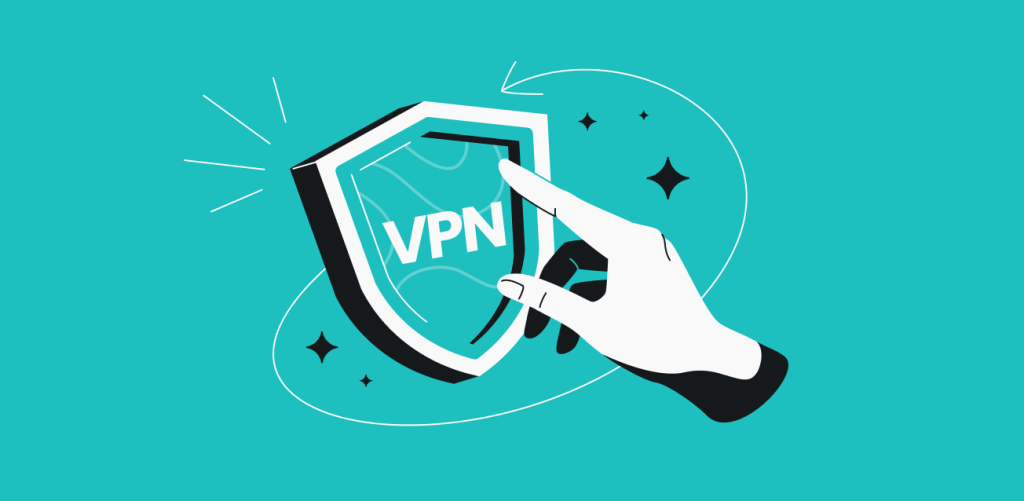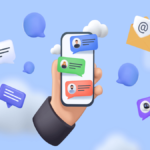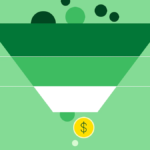You have undoubtedly heard of a “virtual private network,” or VPN, whether you use the internet often or not. It seems that VPN use has surged in the last several years, in part because so many well-known tech YouTubers have endorsed the services. Although not everyone needs a VPN, there are a few important reasons why you should use a VPN.
A virtual private network (VPN) functions primarily by encrypting the data that is sent over your computer’s network connection. The data being sent cannot be decoded by other parties thanks to its encryption. The website you’re trying to visit will then get your encrypted internet traffic once it has passed via a secure server.
Some Advantages of Using A VPN

1. Protecting Your Online Privacy
One of the primary reasons why you should use a VPN is to enhance your online privacy. Every time you browse the internet, your activities are potentially visible to internet service providers (ISPs), advertisers, and even government entities. Websites track your actions through cookies, IP addresses, and other means to build a digital profile about you, which can be sold to third parties.
A VPN encrypts your internet connection, making it significantly harder for anyone to track your online behavior. It masks your real IP address by replacing it with the VPN server’s IP, which can be located in another part of the world. This level of anonymity means that even if someone intercepts your data, it is nearly impossible for them to trace it back to you. Therefore, VPNs serve as an essential tool in protecting your right to privacy in the online world.
2. Enhanced Security on Public Wi-Fi
Public Wi-Fi networks, available in places like coffee shops, airports, hotels, and malls, are convenient but notoriously unsafe. These networks are prime targets for cybercriminals who exploit their lack of encryption to steal users’ data, including login credentials, financial information, and personal messages.
When you connect to a public Wi-Fi network using a VPN, the VPN’s encryption ensures that your data is shielded from anyone attempting to intercept it. This provides an additional layer of security, making it safer to check your emails, log into social media accounts, or complete online transactions while on the go.
Without a VPN, you’re vulnerable to attacks such as “man-in-the-middle” (MITM) attacks, where hackers can position themselves between you and the network to steal your information.
3. Bypassing Geographical Restrictions
Many websites, streaming services, and social media platforms limit access to content based on geographic location. This can be frustrating for travelers or those living in regions where certain content is unavailable. Streaming platforms like Netflix, Hulu, and BBC iPlayer often have different content libraries depending on the country due to licensing agreements, which means users in one country may miss out on content available elsewhere.
One of the benefits of using VPN is that it allows you to bypass these geo-restrictions by routing your connection through servers in other countries. By doing so, it appears as if you’re accessing the internet from the location of the VPN server rather than your physical location. This enables you to access content that may otherwise be blocked or restricted in your region, opening up a world of entertainment, news, and resources.
4. Improving Online Security for Remote Workers
With remote work becoming increasingly common, the security of sensitive company data has become a major concern. Employees working from home or other remote locations may not have access to the same level of security as they would in an office setting. Cybercriminals can exploit these vulnerabilities, leading to data breaches and potential financial losses for organizations.
Using a VPN helps remote workers secure their connections, especially when accessing company systems, emails, and cloud services. Many businesses now require their employees to use a VPN as a safeguard to protect corporate data and prevent unauthorized access to internal networks. This level of security ensures that even if employees are using unsecured home networks, they can still safely access and share sensitive information.
5. Avoiding Bandwidth Throttling
Internet service providers (ISPs) often monitor their users’ online activity and may slow down, or “throttle,” your internet speed based on certain behaviors, such as streaming video, gaming, or torrenting.
This practice, known as bandwidth throttling, is typically done to conserve network resources or prioritize certain traffic over others. However, it can lead to frustratingly slow internet speeds, especially during high-demand activities like watching high-definition videos or participating in online gaming.
One of the reasons why you should use a VPN is, that it hides your online activities from your ISP by encrypting your traffic. Since your ISP can no longer see what you are doing, they are less likely to throttle your internet speed based on your activity. This can result in a smoother and faster online experience, particularly during bandwidth-intensive tasks.
6. Preventing Targeted Ads and Data Mining
The modern internet ecosystem is filled with targeted ads tailored to your browsing habits, searches, and even your location. Websites and advertisers collect data about you to serve you personalized ads, which can often feel invasive. This data is gathered through cookies, IP addresses, and other tracking methods, which are shared among advertisers and third-party services.
By using a VPN, you obscure your real IP address and browsing activity, making it much harder for advertisers to track you. While this doesn’t eliminate ads, it can prevent the over-personalization of content and reduce the amount of data advertisers collect about you. Essentially, a VPN helps you reclaim some control over your online footprint, reducing the likelihood of being bombarded with unwanted targeted advertisements.
7. Securing Online Transactions
In an era where online shopping and banking are the norm, protecting your financial information is crucial. Cybercriminals are always looking for ways to intercept credit card numbers, bank account details, and other sensitive financial information. Without proper encryption, your data is vulnerable, especially when you’re shopping or banking on unsecured networks.
A VPN’s encryption ensures that your sensitive information is kept safe from prying eyes when you perform online transactions. By encrypting your connection, the VPN makes it significantly harder for hackers to access your financial data, even if they manage to intercept your connection. This added layer of security can give you peace of mind when managing your finances online.
8. Accessing Censored Content in Restricted Regions
Many countries around the world impose censorship on certain websites, social media platforms, and online services for political, cultural, or religious reasons. Governments often restrict access to information, block news outlets, and limit freedom of expression online. For individuals living in or traveling to these regions, these restrictions can be a major barrier to staying informed or accessing the content they rely on.
A VPN can help bypass internet censorship by allowing users to connect to servers in countries where access to these sites and services is not restricted. This provides people in censored regions with the ability to access blocked content, communicate freely, and engage with the global internet without facing the restrictions imposed by their local governments. VPNs are thus critical tools for preserving internet freedom and the free flow of information.
9. Anonymous Downloading and File Sharing
Peer-to-peer (P2P) file sharing, often associated with torrenting, has become a common way to share large files quickly and efficiently. However, it is not without risks. Many ISPs monitor torrenting activity and may throttle your internet connection or even take legal action if they detect unauthorized downloads. In some cases, governments and organizations may actively monitor torrenting activity for piracy.
One of the benefits of using a VPN is that it protects you when engaging in P2P file sharing by anonymizing your connection and encrypting your data. This makes it much more difficult for your ISP or other entities to track your activity, ensuring that your downloading habits remain private.
While it’s important to note that using a VPN does not make illegal file-sharing legal, it does provide an extra layer of protection for those engaging in legitimate file-sharing activities, such as distributing open-source software or sharing large media files.
Wrapping Up
As the internet continues to evolve, so do the threats to our privacy, security, and freedom. VPNs offer a robust solution to many of these issues by encrypting your connection, hiding your IP address, and securing your online activities.
Whether you’re protecting sensitive data on public Wi-Fi, bypassing geographic restrictions, avoiding bandwidth throttling, or simply maintaining your anonymity, a VPN is a powerful tool that provides peace of mind in an increasingly interconnected world. There are several reasons why you should use a VPN.
With these reasons in mind, it’s clear that using a VPN is a wise investment for anyone looking to safeguard their online presence. By incorporating a VPN into your digital routine, you take a proactive step toward protecting your data and maintaining control over your online experience. As more users become aware of the benefits, VPNs are likely to become even more essential in the fight for privacy and security in the digital age.
FAQ
Q: Can you get faster Internet using a VPN?
A: VPNs can speed up certain services under certain conditions. Certain kinds of traffic are occasionally throttled, or intentionally slowed down, by ISPs. For instance, several large ISPs have throttled streaming entertainment services like Netflix.
Q: Is your location hidden by a VPN?
A: Indeed. Your actual IP address, which is often used to estimate your approximate geographic location, may be hidden using a VPN. You may make it look as if you are surfing from a different place by connecting to a VPN server there, which will hinder others from precisely locating you.
Q: Does using a VPN improve gaming?
A: There are also advantages to location faking for games. You may avoid crowded hosts with excessive latency and enjoy a much smoother and more competitive gaming experience by connecting to distant servers using your new location.







